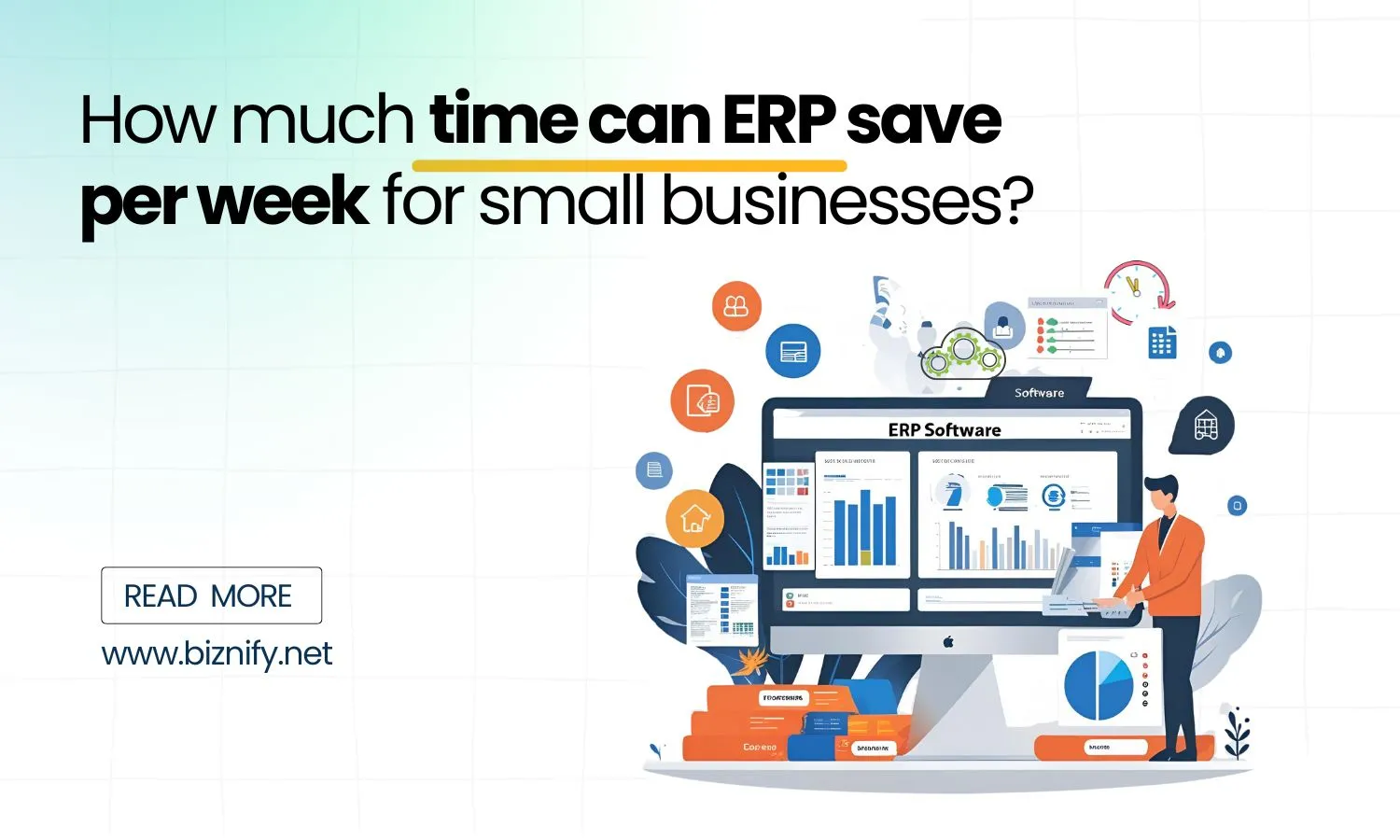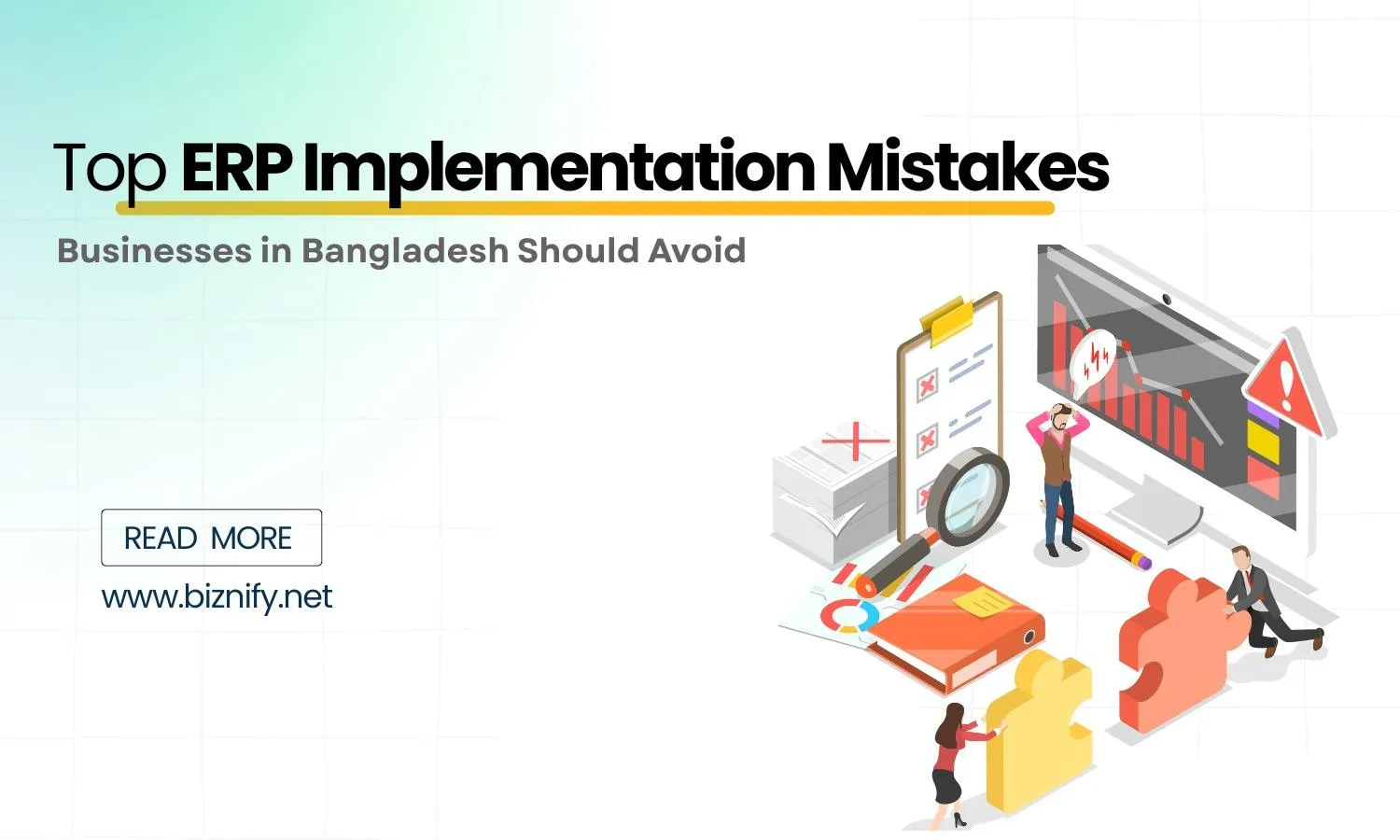
On average, ERP software can save businesses in Bangladesh 8 to 10 hours every week by automating billing, reporting, payroll, and stock updates. Instead of spending hours fixing manual entries or switching between spreadsheets, teams get that time back to focus on sales, customers, and growth.
Ask any business owner in Bangladesh what they need more of, and chances are, the answer will be time. Not capital. Not tools. Just more time.
Time to talk to customers. Time to check in on branches. Time to review orders, handle paperwork, and follow up on overdue invoices. But for most business owners, time disappears inside spreadsheets, endless WhatsApp chats, and manual errors.
That’s where ERP software comes in. It doesn’t just give you better data. It helps reduce manual errors and gives you back hours of your week, one screen at a time. So how much time can ERP actually save? And what does that look like for a real business?
Most business owners don’t realize how much time they lose each week. It happens in small pieces.
You spend 15 minutes checking if the stock is available.
You spend 30 more tracking a sale that wasn’t recorded.
Then an hour trying to fix an invoice that was sent to the wrong customer.
Multiply that across a week - across multiple staff - and suddenly, you’ve lost 10, 15, even 20 hours on tasks that shouldn’t have taken more than a few minutes.
This doesn’t mean your team is slow. It means they’re working in systems that don’t help.
ERP replaces scattered tools with one connected system - a key reason why Bangladeshi SMEs benefit from ERP adoption more than ever before.
Let’s take a closer look at where time goes:
Inventory updates often involve phone calls, manual logs, or physical checks.
Sales reports are compiled at the end of the day or week, often manually.
Invoices are made on Excel, then sent by email, and then followed up on by phone.
Employee shifts are tracked by paper or verbal confirmation.
Stockouts or over-orders happen because no one checked what was already in the system.
All of this adds up.
And because each part is handled separately - sales, accounts, stock, HR - the same data is entered again and again, often with slight errors that need fixing later.
ERP helps fix this by connecting those parts. Once a sale is made, stock is updated. Once a shift is marked, payroll reflects it. You don’t lose time moving between systems, and you don’t fix the same mistake twice.
There’s no single number every business is different. But based on usage from small teams in retail, services, and distribution, here’s a realistic breakdown:
3–4 hours/week saved from manually checking inventory across outlets
2–3 hours/week saved from fixing sales data and generating reports
2+ hours/week saved from faster billing and invoice follow-up
1–2 hours/week saved from managing employee records and payroll
That’s a minimum of 8–10 hours saved every week without hiring more staff or working longer days.
And this is just the beginning. Businesses that use ERP consistently start seeing even more time savings as they automate recurring tasks.
When staff stop spending hours fixing entries or chasing updates, they can finally focus on work that matters.
Sales teams have more time to follow up with leads.
Managers spend less time gathering data and more time analyzing it.
Owners can think beyond daily operations and plan for growth.
For many businesses in Bangladesh, this is a game-changer. Most teams aren’t lazy, but they’re stretched. When ERP gives them better tools, it changes how they work.
You Don’t Need to Use the Whole System to Start Saving Time
ERP doesn’t have to be overwhelming. You don’t need to set up all features at once to start seeing results.
Many Biznify users begin with a single module, often sales or inventory. That alone can save 5–6 hours a week.
Then, over time, they add HR or accounting features. The key is to make the system part of the daily process, not a separate burden.
You don’t need perfection. You just need progress.
Every business owner in Bangladesh works hard. The problem isn’t effort, it’s time. And too often, that time is wasted on checking spreadsheets, chasing updates, or fixing simple mistakes that shouldn't have happened in the first place.
ERP doesn’t make your team move faster. It just removes the tasks that slow them down. It replaces guesswork with clarity and repetition with automation.
That time adds up. Week after week. Month after month. Without realizing it, you may be losing 10, 15, or even 20 hours per week across your team, hours that could be spent on sales, planning, or even going home early. And if you’re not sure where to begin, this ERP starter guide will walk you through the first steps without tech jargon.






Just exploring ERP or unsure which modules you need? The Biznify team’s here with straight answers.